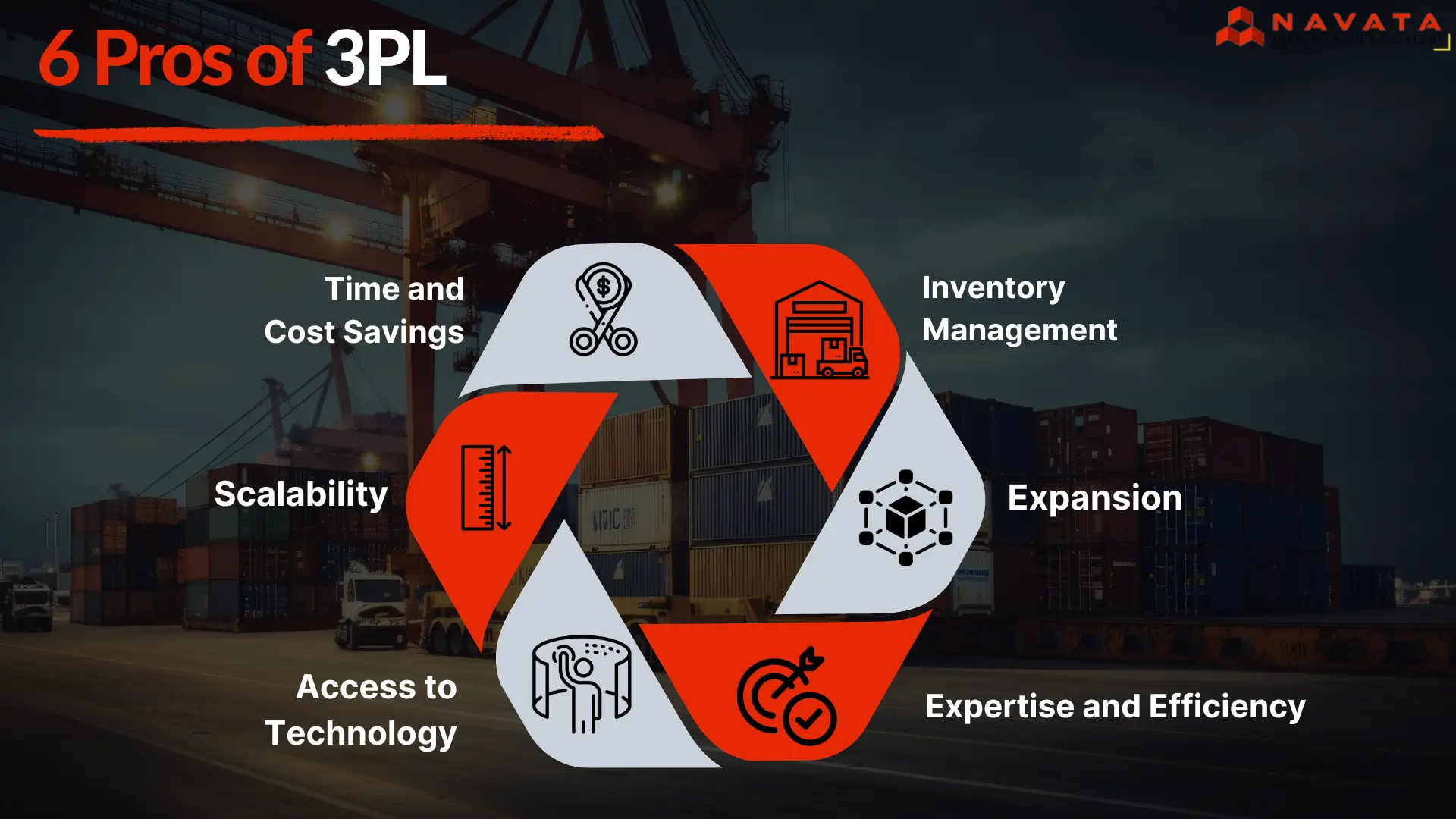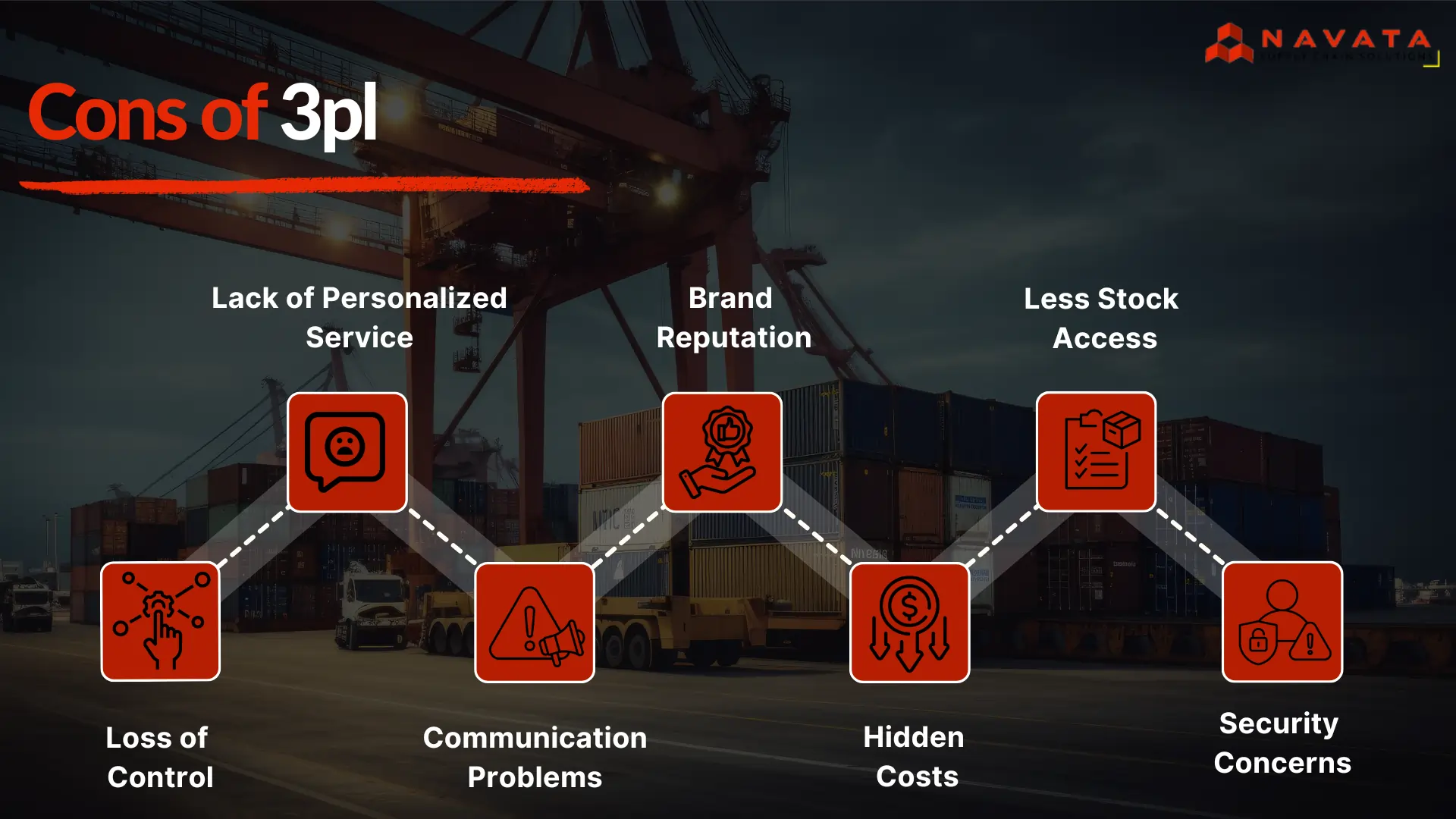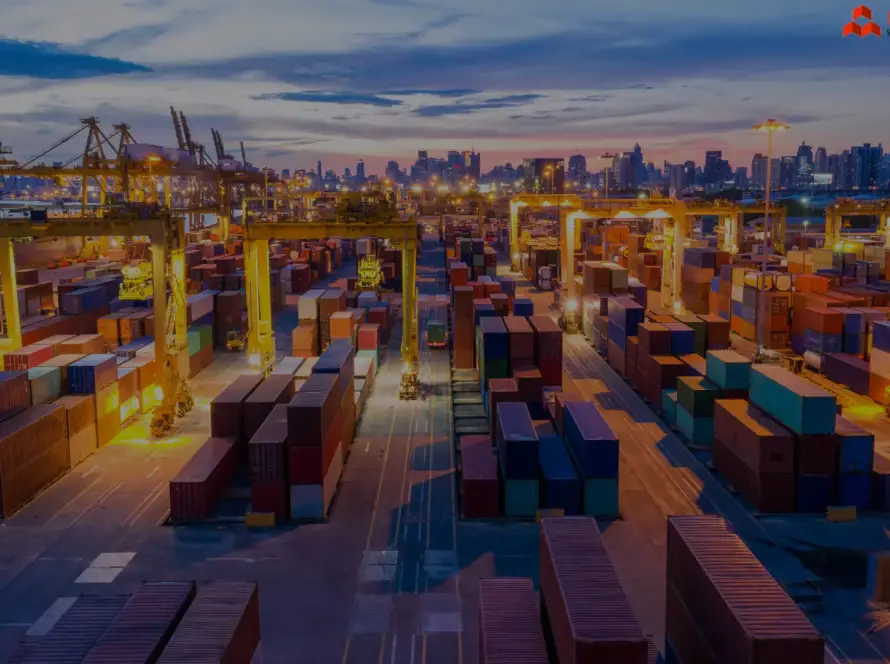Pros and Cons of 3PL
In 2023 the worldwide online sales industry exceeded $5.8 trillion showcasing the market. With the rising demand many businesses are opting for third party logistics (3PL) services to enhance their efficiency. These companies offer a range of logistics services that can help businesses manage their supply chains more efficiently.
This blog will examine the pros and cons of employing 3PL services, giving companies thinking about making this strategic decision a thorough rundown of the whole picture. By looking at the possible advantages and disadvantages, we hope to provide you the knowledge you need to decide whether or not to include 3PL in your supply chain strategy.

Pros of 3PL (Third Party Logistics)
Time and Cost Savings
Reducing costs is a major advantage of working with a third-party logistics company. Your business can take advantage of the reduced prices offered by third-party logistics services for a variety of functions, including transportation and inventory management. Another expense that may be decreased or eliminated is the upkeep of your own fleet of trucks, vans, and other vehicles as well as your warehouses.
Time savings is another advantage of working with a third-party logistics company. Businesses can concentrate on key areas like customer service and product development by outsourcing their logistics.
Inventory Management
Leveraging a third-party logistics service’s knowledge and specific tools can assist your organization improve its operations and inventory management. Outsourcing logistics to a third-party service benefits businesses since the service is more suited to tracking, monitoring, and adjusting inventories and other processes.
Using a third-party logistics firm allows you to benefit from their advanced talents and knowledge without incurring the significant costs associated with maintaining such highly qualified personnel as in-house staff.
Expansion
3PL services make it easier than ever to expand your business into emerging markets and new sectors, including developing countries. Working with a 3PL allows a company to harness new supply chains, improve customer service, and gain access to previously untapped markets.
Third-party logistics providers’ distribution centers and warehouses, which frequently incorporate security and compliance measures into their service offerings and have gained the necessary certification to offer worldwide services, make such growth more accessible than ever.
Expertise and Efficiency
3PL providers bring extensive industry knowledge and expertise to the table. They have the skills and resources to optimize logistical processes, resulting in increased efficiency and lower operational costs. This expertise is especially useful for businesses entering new markets or dealing with complex supply chains.
Access to Technology
3PL firms commonly invest in advanced logistics technology such as transportation management systems (TMS) and warehouse management systems (WMS). Businesses that work with a 3PL can benefit from these technologies without making significant investments. Furthermore, 3PLs enhance data analytics and visibility into supply chain operations, enabling more informed decision-making.
Scalability
A 3PL supplier can expand a company’s space, labor, and transportation based on the particular services required. Manufacturers, suppliers, and other companies can expand into new markets in a more effective and innovative way, with less difficulty. A 3PL is designed to optimize logistics functions that you may lack experience in, paving the way for increased business growth.

Cons of 3PL (Third Party Logistics)
Loss of Control
When outsourcing logistics to a 3PL provider, businesses may experience a loss of control over operations. Handing over logistical operations to a third party implies you have far less control over day-to-day activities and may not have access to real-time information. Miscommunications, insufficient supplies, delayed deliveries, and other challenges may arise as a result of this lack of control.
Lack of Personalized Service
While most third-party logistics providers aim to give some individualized service, they may not be able to handle logistics with the same level of personalization as an in-house team. A lack of personalized service can lead to delayed responses to customer inquiries, limited customization possibilities, and far less flexibility in dealing with particular client preferences.
This is another situation in which regular monitoring and communication between your firm and the third-party logistics supplier is critical.
Communication Problems
While regular communication is essential and can frequently fix many problems, it can be difficult when working with a third-party logistics company. Third-party providers serve a diverse range of clientele, each with unique requirements. This condition may make it difficult to provide appropriate time and attention to each client, including your business.
Communication can be much more challenging if your third-party logistics supplier is located elsewhere or if you are working with a partner in another country.
Brand Reputation
If your third-party logistics provider is unreliable or inefficient, your company’s reputation and financial line may suffer. Poor logistics can result in delays, stockouts, and other issues that dissatisfy clients and harm your company’s brand. It is critical for your firm to assess possible third-party logistics suppliers and ensure that everyone involved understands your requirements.
Hidden Costs
While 3PL services can save money, there may be additional charges. Fuel surcharges, accessorial fees, and contract revisions are all potential sources of additional fees and taxes. Companies must carefully evaluate contracts and maintain open contact with their 3PL supplier to minimize unforeseen costs.
Less Stock Access
One disadvantage of outsourcing logistics to a third party is that they may not have access to the company’s goods if they are in a different location. This issue may cause shipping delays, which will impact your customers’ experience. Other obstacles associated with location include customs clearance, language barriers, and time zone differences.
Security Concerns
Outsourcing logistics to a third-party logistics company raises issues regarding data security and product safety. Businesses must verify that their 3PL partners have strong security procedures in place to protect sensitive data and items during transit and storage.
You may also like to read : What Are The Roles And Benefits of 3PL?

Conclusion
This blog has analyzed the pros and cons of 3PL services, providing a thorough overview for businesses considering this strategic decision. We’ve discussed the potential advantages, such as cost and time savings, knowledge, scalability, and access to modern technology. In contrast, we explored the disadvantages, which included a loss of control, probable quality difficulties, hidden expenses, and security concerns.
Understanding these benefits and drawbacks allows firms to make informed decisions about implementing 3PL into their supply chain strategies. We hope this guide has given you useful information to help you decide whether 3PL services are suited for your organization.
Thanks For Reading: Pros and Cons of 3PL
Powered By 360Presence

